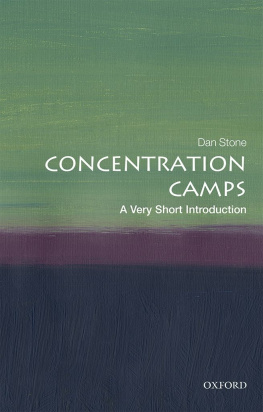Published by The History Press
Charleston, SC
www.historypress.net
Copyright 2018 by Gregory D. Sumner
All rights reserved
First published 2018
e-book edition 2015
ISBN 978.1.43966.577.0
Library of Congress Control Number: 2018948031
print edition ISBN 978.1.62585.837.5
Notice: The information in this book is true and complete to the best of our knowledge. It is offered without guarantee on the part of the author or The History Press. The author and The History Press disclaim all liability in connection with the use of this book.
All rights reserved. No part of this book may be reproduced or transmitted in any form whatsoever without prior written permission from the publisher except in the case of brief quotations embodied in critical articles and reviews.
For John Baxter,
Renaissance Man
and
Hannah Arendt, Heinrich Bll, Carlo Levi and Primo Levi, Germans and Italians whose humanity knew no boundaries
CONTENTS
ACKNOWLEDGEMENTS
The best thing about researching this book was the excuse it gave me to travel around the four corners of the beautiful state of Michiganincluding my first trip to the fabled U.P. I met kind and helpful people all along the way and am indebted to those associated with the public libraries and local historical societies who do such important work in preserving our heritage.
I also thank the staffs at the National Archives in Washington, the University of Detroit Mercy Library, the Hatcher Graduate Library at the University of Michigan and the Walter Reuther Archives at Wayne State.
Special thanks to Emily Foster for sharing her stories about the POWs she knew during World War II, as well as Larry Carter, Chris Causley, James Conway, Kathy Cyr, Omar Doran, Leona Foster, Yarleth Gomez, Brenda Lyndyke, Bob Myers, Howard Poole and Joan Thompson.
I also much appreciate the people at The History Press for making my second book with them a smooth and enjoyable processespecially Laurie Krill, my editor, who always went the extra mile, and Abigail Fleming, my gifted and dedicated copyeditor.
A shout out to Alexandra Hichel at UDM for her wizardry with the photographs.
Thanks, as always, to my wise and supportive agent, Robert Thixton.
And love to my family and the friends who gave me extra encouragement on this project, including Casey Blake, Ron Carpenter, the Tuesday Night Goldfish gang, Commissioner Roy Finkenbine, Amy Howes, Donald Kroger, Marty Leever, Eric Mesko, Maryrose Patrick, the Recchias, Dan Rosbury, Battle Captain Robert Rouse, Sigrid Streit, Jim Wheeler, Mike Wilhelm and the rest of the Mingoes, the Wilberts and Logan, Alexandra, Lucas and Isaac.
INTRODUCTION
A BREAK FOR THE UNDERDOG
MICHIGANS WORLD WAR II POW CAMPS
Emily Foster brought them back with crystal clarity: those late summer and early fall days of World War II, now seven decades distant, when German soldiers came to work on her familys acreage in the heart of Michigans bountiful Fruit Belt. Over tea in her living room that July Saturday in 2016, Mrs. Foster recalled to me how, as a naive country girl, she marveled at the exotic visitors and, in spite of barriers of language and rules against fraternization, could not help but get to know them as human beingsin her words, big brothers.
The stories poured forth that afternoonoft-told, perhaps, but with a sincerity and good humor that was infectious. Looking back, she considered those menpawns in a game of grand strategy and global warfareas no less than a deliverance, the answer to her fathers prayers at a time when hands for the harvest were in desperately short supply. Without them, the better part of three bumper crop years of apples, peaches, apricots and cherries would have been left to rot in the fields.
Emily spoke with special fondness of the first group of POWs. Their youth concealed the fact that they were professional soldiers from Rommels Afrika Korps, men who had endured the indignity of defeat and surrender after months of hard fighting in the desert. With thousands of their German and Italian cousins, they had been herded into cages and stockades, shipped across the Atlantic and then taken by rail across prairie and mountain to holding camps in a country whose vastness defied the imagination.
If the prisoners Emily encountered were any indication, efforts by the War Department to weed out incorrigible Nazis and Fascists in their ranks were having considerable success. These fellows were unfailingly correct and polite in their behavior, and they were willing to work long hours without complaint. Many (though by no means all) were actually relieved to be out of the war. When asked about their hopes for the day when peace returned, the response was, to a man, simple and timeless: to return home, to be reunited with their loved ones after a long and painful separation.
Emily explained to me the dilemma her father, William Teichman, faced in the summer of 1943 as the American part of the war rolled through its second year. Tire and gas rationing meant that the Arkansas families who usually worked Michigans orchards were not able to make the trip. When a notice appeared in the local paper announcing that POWs at the new fairgrounds camp near Sodus, twenty miles north, could be contracted to fill the gap, Mr. Teichman seized the opportunity, requesting a detail of tenthe minimum allowed.
Soon men with PW marked on their backs became a common sight in Berrien County, bouncing along in the back of the flatbed trucks that carried them to and from their work assignments. They seemed in good spirits, singing and waving to people along the way. The single American MP assigned to guard them, clearly a man of more advanced years, sat in the passenger seat, paying them little mind as he dozed or daydreamed.
Though the majority of the residents of that part of southwestern Michigan were proudly German in ancestry, few understood more than fragments of their grandparents language. You will speak English, and you will speak it without an accent, Emily remembers her aunt sternly insisting. Her father, a veteran of the Great War, was an exception to the rule, and in addition to being pressed into duty as a translator for neighbors who had also taken on POW labor, his fluency allowed him an unusual rapport with the men under his supervision. The bonds only deepened once he convinced Sodus officials to assign him a regular group, eliminating the need for constant re-training in the basics of thinning and picking fruit.
Each workday around noon, Mr. Teichman brought the prisoners to the front yard for their lunch break. As a twelve-year-old, Emilys job was to set up tubs of clean water so they could wash off the dust of the morning and organize packing crates so they could sit with at least a degree of comfort. Her father ate his meal outside with them, under a shade tree, while the guarda real character, she recalled with a smilejoined the rest of the family inside at the kitchen table.
Lunchtime at the Teichman farm during World War II. The child in the photograph is Emilys younger sister Judy.















